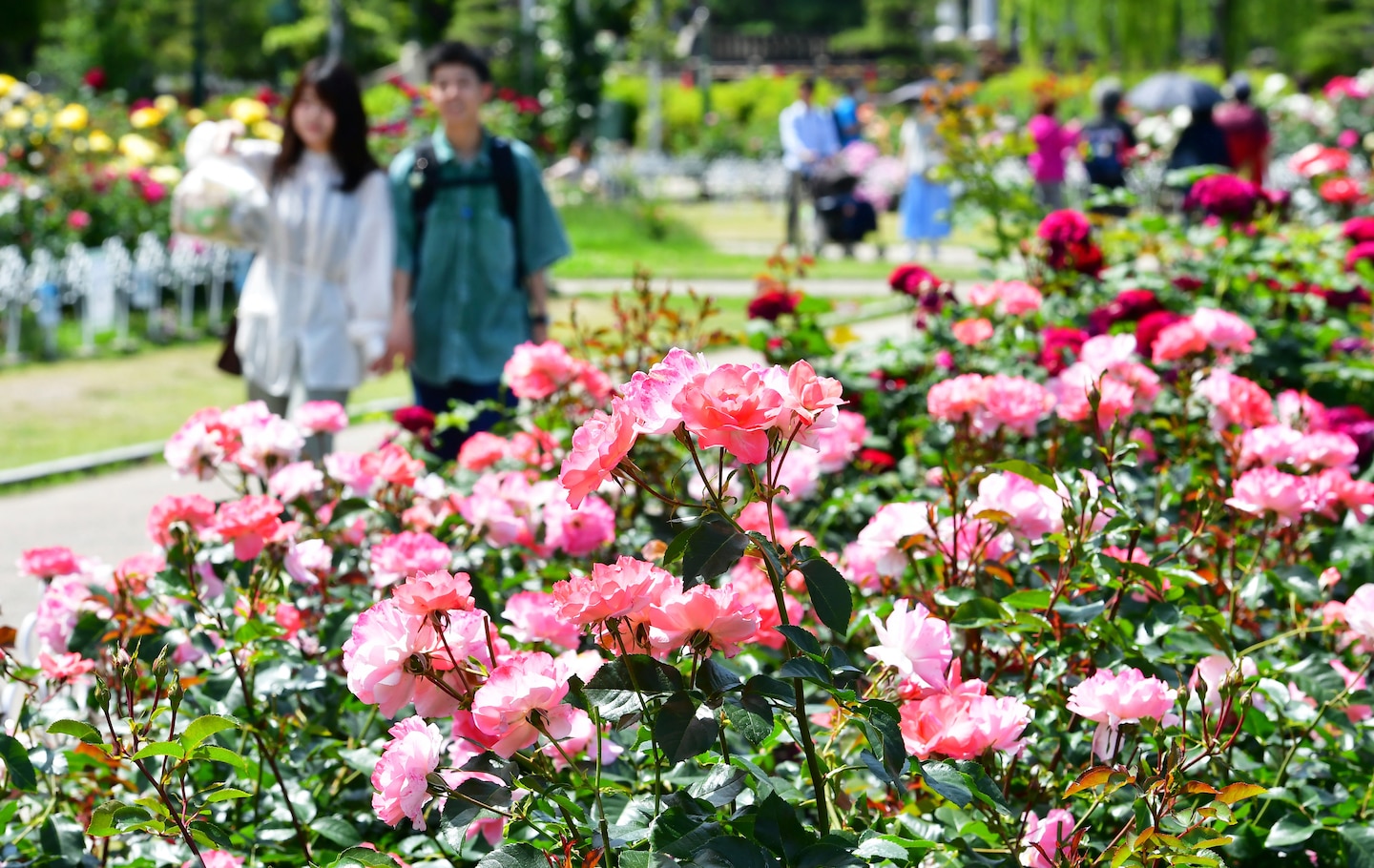Lockdowns make the heart grow fonder in Japan as online matchmaking surges

So the now-familiar tool of pandemic-era business — the video chat and those little windows — became an unexpected opportunity for Japan’s Cupids for hire.
Online matchmaking in Japan has become a rare upbeat counterpoint to the economic slowdowns, shutdowns and restrictions during the covid-19 crisis.
Matchmaking agencies say the video encounters have proved to be a hit, removing the pressures of arranged face-to-face sessions in a society that often discourages being bold and open in first meetings.
“Without the online setting, we never would have met,” said Kazunori Nakanishi, a 31-year-old hotel employee from the eastern city of Kumamoto.
Matchmakers arranged for him to chat with Ayako, a 43-year-old social worker. She lives in Tokyo, about 550 miles away.
Late last month, shortly after restrictions on travel were lifted across Japan, they met in person for the first time. The following day they got married.
“For people who are shy, I think being able to join from your ‘castle,’ from your home base, without being inhibited by distance, makes it easier, rather than being overwhelmed in a strange place,” Nakanishi said. (Ayako spoke on the condition that only her first name be used because of privacy concerns.)
‘Rational way’ to meet
Japanese women, in particular, are often reluctant to share contact details with prospective matches, and sometimes spend days chatting online before even exchanging photos, exhausting themselves with worry whether the only person is trustworthy, said Kota Takada, president of LMO, the matchmaking company that first brought the couple together through the video-chat app Zoom.
“On Zoom, people can have fruitful conversations pretty close to those you can have in person,” without exchanging personal contacts, he said. “This is a very rational way of expanding your chances while feeling safe and secure at home.”
Matchmaking services of various kinds are popular in Japan — setting up meetings or arranging activities for people to interact. Official data is not available, but at least tens of thousands of people use these services every year seeking a partner.
Ayako, the newlywed, said it is easier to meet online. You don’t have to spend quite so long getting ready, or leave home all dressed up to travel to an unfamiliar place, she said.
LMO and other companies tend to start with a group meeting conducted over Zoom: An emcee makes everyone comfortable, helps them introduce themselves and asks them a few questions to spark conversation. How have you been being spending your time at home? How do you imagine married life to be? What are your dreams? Then participants pair off into breakout rooms and spend several minutes chatting to each prospective partner in turn.
Kazunori and Ayako met three times in this way before finally deciding to start “online dating” around May 20. Over the next month, they spent a huge amount of time together online, sometimes staying connected for up to eight hours as they went about their lives.
They discovered a common passion for motorbikes and shared a dream to ride around Japan.
Fewer marriages
Kazunori proposed to Ayako on June 19 at a wedding chapel, along with Takada from LMO, with friends from their online matchmaking events joining by Zoom to congratulate them. They registered their marriage the following day, making it legal, but are still to hold a formal ceremony.
Matchmaking companies have restarted in-person events since the state of emergency was lifted in Japan in May, but will also continue to stage online events as well.
Financial constraints and low wage growth, coupled with career pressures and long working hours, put marriage and child-rearing out of reach for many. At the same time, growing independence, better education and greater employment opportunities among Japanese women have also made them less enthusiastic about the gender roles and division of labor expected of them in a traditional Japanese marriage, experts say.
A marriage boom in the 1970s saw more than 1 million couples tie the knot every year. By 2019, the number had fallen to 599,000. The proportion of men who had never married by age 50 rose to 23.4 percent in 2015, up from 1.7 percent in 1970, while the same ratio for women rose to 14.1 percent from just 3.3 percent 50 years ago, government census data show.
Could the pandemic turn those numbers around some? Yuko Okamoto, who jointly runs the Hachidori marriage referral company in Tokyo, believes so.
She was surprised to see more people than usual exchanging contact details at their online matchmaking parties.
“I felt that people were really anxious to marry,” she said. “They have really been taking the stay-at-home request seriously and working at home, and then starting to feel lonely.”
There was also a short-lived rise in marriages in 2012 that was widely credited to the earthquake, tsunami and nuclear disaster in Fukushima the previous year.
“We’re delighted to hear from people saying they were glad to have had a chance to meet someone in this tough time through our new online services,” said Masamitsu Nagaoka, public relations manager at O-net, a marriage referral service company with more than 50,000 members, one of the largest in Japan.
“In these difficult times, amid all the anxiety, and probably because of that, they tended to think more seriously about their future,” he said.






